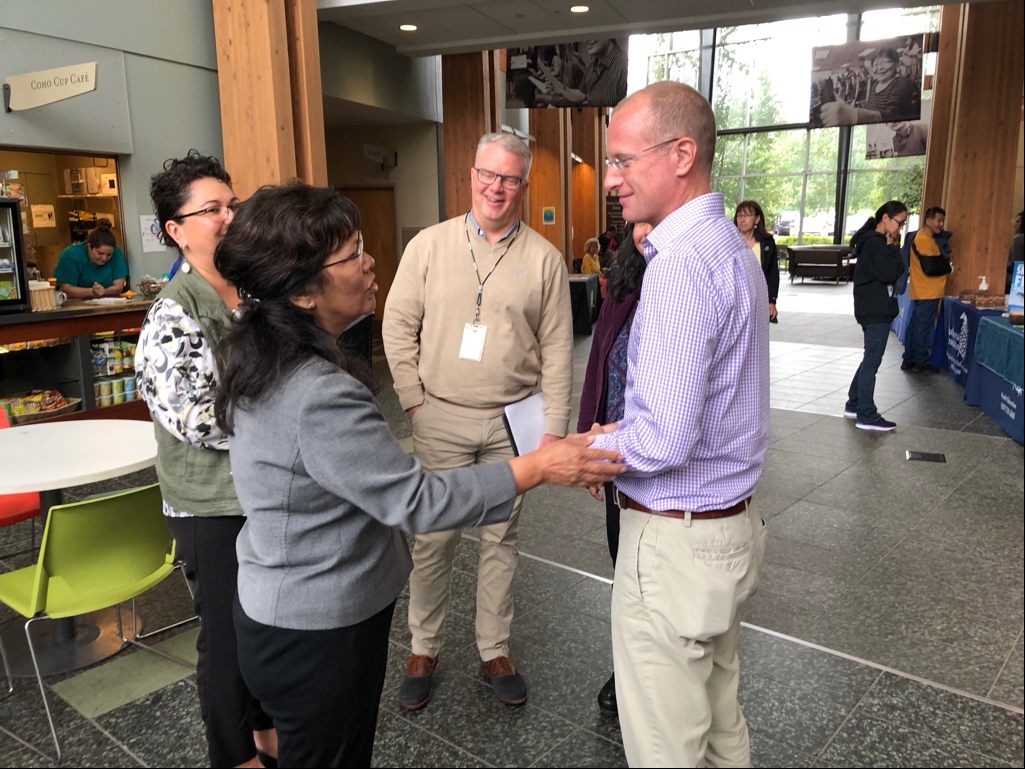
While it may not seem like it, Federal Communications Commission plays a major role in Alaska health care.
Rural health care providers receive subsidies from the FCC to help pay sometimes-hefty internet bills incurred with tele-health services.
Tele-health services allow doctors to diagnose patients who may be hundreds of miles away and off the road system.
However, committed subsidies were less than 1 percent of what providers were anticipating this year, which resulted in some service shutdowns in rural communities like Cordova.
FCC Commissioner Brendan Carr also attended a video conference with doctors working at the Alaska Native Tribal Health Consortium.
“Trying to make people fly in with their parent escort for a half-hour, 45-minute visit every three months, when it takes a day to travel here and they spend a night at a hotel, then they spend the next night in a hotel, then they travel home and they’re missing three days of work and school,” said Dr. Rachel Lescher, who specializes in issues such as child diabetes. “(It) is not very practical.”
Carr learned about the ways specialized doctors in Anchorage are able to help with issues a rural-based aide isn’t trained or equipped to handle.
“For years, the program was under-subscribed, meaning we weren’t hitting the cap on the support that we would provide through the Universal Service program,” Carr said. “Last year and the year before that, for the first time, we started hitting and going over that cap, and so the FCC voted a couple months ago to raise the cap so we can provide the necessary funding to support these deployments.”
Carr said raising that cap from $400 million to $571 million is one of the ways that the FCC is addressing subsidy issues.
The commission also is working to process the payments more effectively due to concerns from service providers that it was taking too long.
Getting those subsidies will help rural health aides, who generally are the first line of defense when someone has a health problem in a rural area, continue to use tele-health services, which she says she uses every day.
Carr will round out his Anchorage visit with meetings with local broadcasters before flying up to Utqiagvik and Wainwright and later Dillingham and Point Clark.
He heads back to D.C. on Friday night.
